Tribute To Big Ron
“Ron had a big-time joie de vivre. He loved people, and he loved his boxing. When it came to training, he had a ton of patience. He was so good with people of all ages and skill levels. He had some who wanted to compete; others just wanted to learn and get in shape. He was very strong at adjusting to his customer, and he was very genuine. To him, it was all about respect, attitude, and will.”
That is what Stuart Rosen had to say about Rinaldo Di Cecco, known to most as Ron, a highly respected Montreal boxing trainer who passed away from a heart attack in February at the age of 70. Rosen, who worked in transportation, had trained with Ron for ten years.
Ron was born on March 13, 1949, one of six children. The eldest of five boys, he and his family lived in the Parc-Extension district of Montreal before moving to New Bordeaux. Iolanda, the eldest child, and only daughter, remembers her brother’s fondness for sports. “In the middle of the street, all the boys would get together and play hockey, football, whatever they could. They were forever playing sports. My father would drive them to all their games, and no matter what the weather, they didn’t miss anything.”
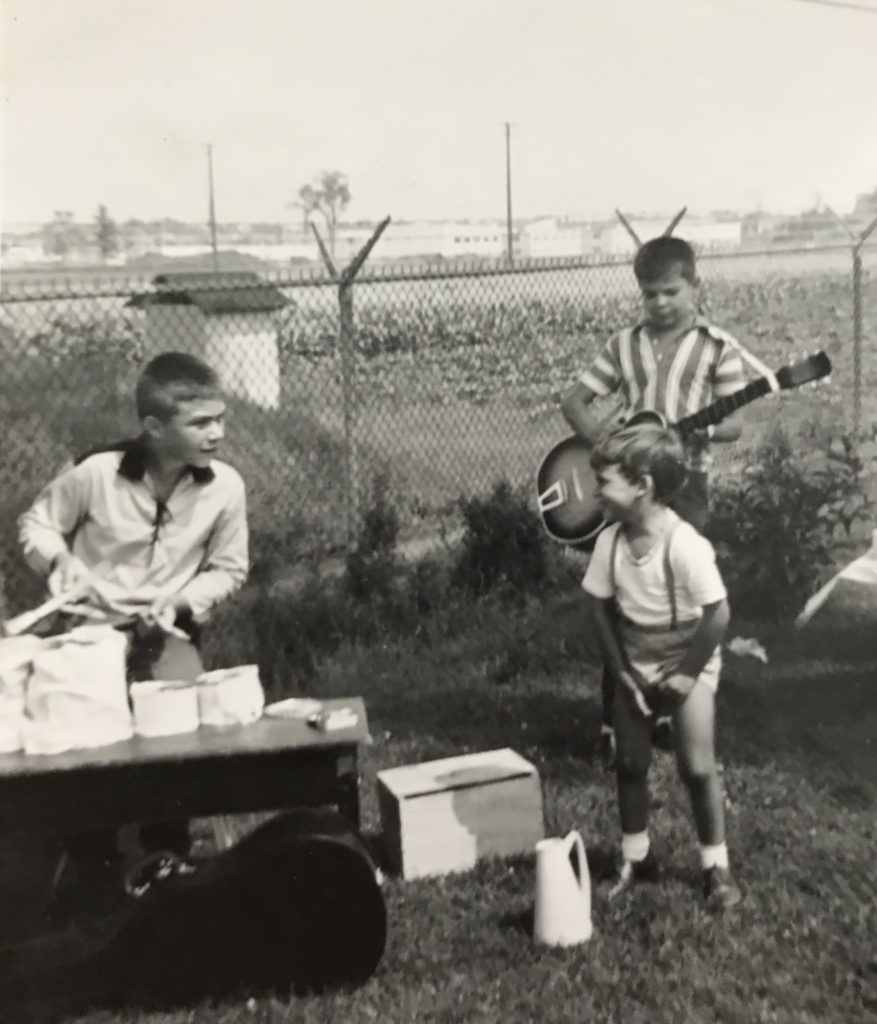
Ron was also passionate about music. “Around the age of ten, believe it or not, he got a group of kids on the street, and they had their own band,” recalls Iolanda. “They used to practice in the garage on makeshift instruments, and they would have performances in the backyard for the kids on the street. Ron was a showman right from the beginning. And then, as he got older, he formed a band called The Born Again Platters that toured Quebec and North America for quite a few years, and they were very popular.”
As a young man, Ron was dedicated to karate, and like all of his pursuits, he tried to become the best at it. It was during his karate days that he met Bill St. Onge, and the two would form a close, albeit fiery, friendship that lasted forty-six years. As a training partner of Ron’s, Bill came to understand his friend’s fierce and competitive nature.
“I’ve never seen a more intense person in my life,” recalls Bill. “He got his karate black belt in three years, which is almost unheard of. He was so intense, wanted it so bad, and our sensei, Hisataka, pushed him on. When Hisataka returned to Japan, Ron went with him. Ron weighed 175 pounds then and when he competed in Japan, he demolished anybody they put in front of him. Hisataka told me Ron was ‘the student of a lifetime.’ That’s how good he was.”
Ron also worked alongside Bill as a nightclub bouncer from the late 1970s through the mid-1980s. He even spent a year working security in Las Vegas. From the nightclub business, he moved to advertising, where he was very successful. The money he earned in advertising enabled him to buy into the fledgling Tristar Gym in 1991, along with Michel Lavalee and Conrad Pla. Together they built the gym and brand that has become one of the most successful mixed martial arts institutions in the world.
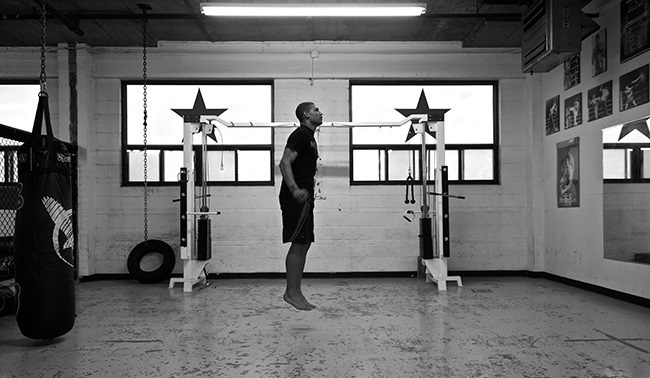
Danny Brown, who was the boxing coach at Tristar during those early years, met Ron when he was nineteen. At the time, Brown was an amateur boxer, and he also worked in the nightclub business, which meant that he got into plenty of unnecessary trouble. Ten years Brown’s senior, Ron provided much-needed guidance in a crucial time in his life.
“Ron was always there to give me a firm word of advice,” recalls Danny. “He didn’t beat around the bush. He called things as they were and I needed that. I needed somebody to take an interest in me and guide me. That’s how we became friends.” That friendship would last forty years, which included time working together at Tristar. “We just made it work,” recalls Brown. “We were a good team. We all found a way of respecting each other and not fighting among us. For many years, it ran smoothly and we had a lot of fun.”
However, personal differences and egos eventually became too much for the three Tristar owners to overcome. The vicissitude caused Ron to sell his shares and start his own boxing training business, which ultimately became a tremendous success and a major part of his legacy.
Big Ron’s Fight Studio would eventually find a permanent home in the basement of the Report Collection building at 5525 Pare Street. That’s where I trained with Ron for all the years I knew him, though it was not his gym’s first location. In fact, Ron started teaching private boxing lessons at what was then the West Coast Gym on Jean Talon. His first private client was Joe Capannelli. The two had met at the Southwest Boxing Club in Little Burgundy. They continued training at Tristar, so it was only natural for Joe to follow Ron when he began his solo endeavour, and together they trained for five years.
“It was only Ron and me who were training in the back of the gym and people would watch,” Joe recalls. “Eventually, they started asking him to train them. That’s how he started his business. But I don’t want to take all the credit because Alex Hilton came into the picture shortly after me. People used to watch us train, and slowly he built up a great business.”
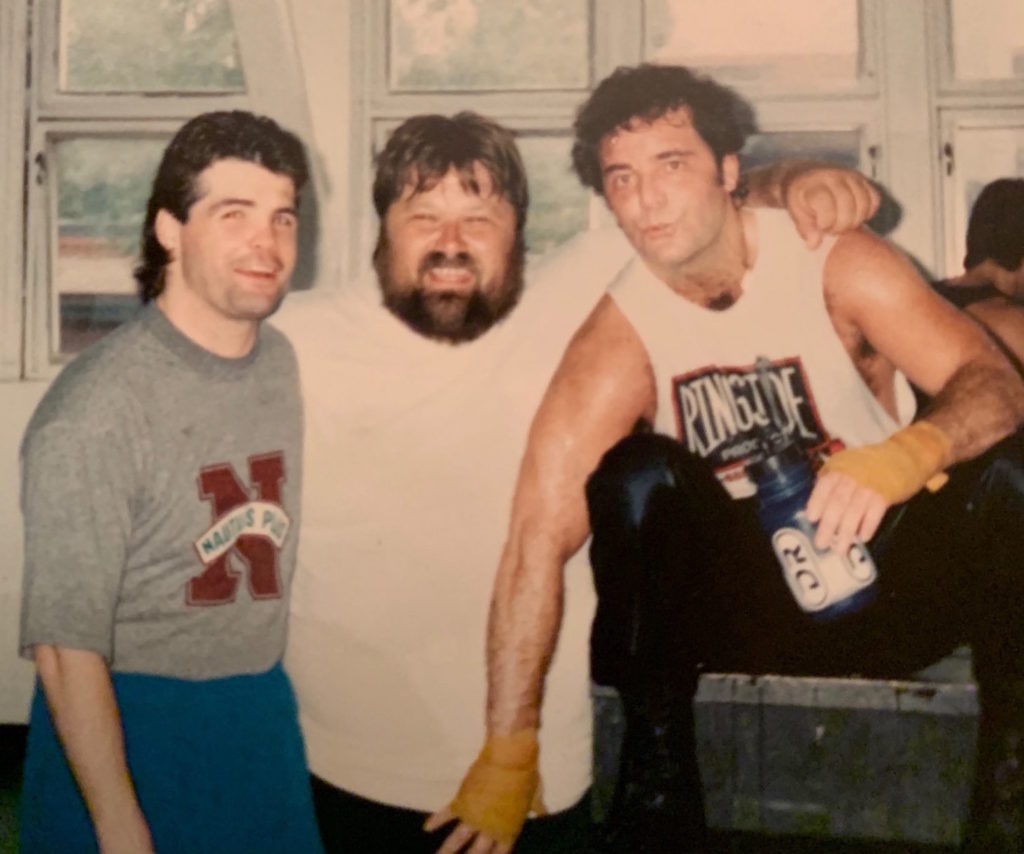
When it came to Di Cecco’s coaching style, Joe can attest to its intensity. “There was no bullshit with him. At least, not in the gym. He was tough and very technical. Ron expected everything from you and he would only take on guys that would give him their all. He was very demanding and he would push you to the max. That’s what I loved about him. When you’re in the last thirty seconds of the last round and you want to stop, he would keep pushing and get another three rounds out of you. Some trainers don’t push; they’re only there to take your money. Not Ron.”
As was the case for all of his trainees, Ron was way more than a coach to Joe. “We became very close. If you had a problem, you could talk to him and he would help you get through it. You never know what life will hit you with, but he was always there to spark you up and make you feel better. Whatever crisis you were going through, Ron was there because he cared about his students and his friends. I just loved the guy. I felt very comfortable with him; he was like a brother to me. We had some good laughs, some good cries, and I’m going to miss him.”
As Ron put Joe and Alex through rigorous sessions of pad and bag work at West Coast, other gym members started to pay attention. One of those members was the aforementioned Rosen, who knew boxing could provide the high-intensity cardiovascular training that his weightlifting sessions were lacking, thus creating a truly balanced fitness routine. Rosen developed a tight bond with Ron over the years, one that extended well beyond the confines of the gym.
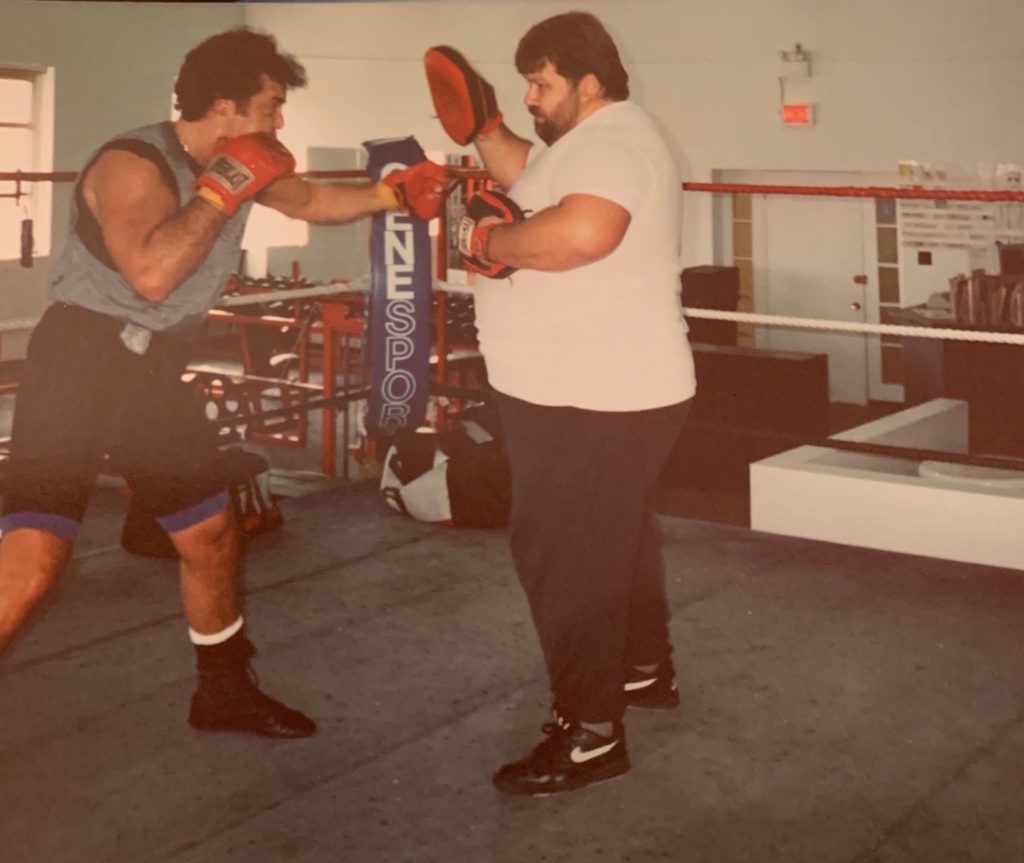
“Ron never had children, so he took the role of a father or big brother to so many of his students, whether they be female or male. We can speak of my brother-in-law, and my nephew most recently. And there are so many other students to whom he played that kind of role. Ron was much more than a trainer; he was a therapist, and a sounding board. His gym was a place to not only release your physical stress, but your psychological burdens too.”
The most well-known of Ron’s mentees was Alex Hilton, of the famous Hilton family, who, along with his brothers, had numerous run-ins with the law.
“Alex, when he was close to thirty, met Ron, and they hit it off,” said Brown. “Ron put him in his place, knocked him down and built him up. He took Alex in his home for quite some time. He fed him, trained him, and brought him to fights. Ron opened his door to Alex because he genuinely felt for the kid. Ron always told him what he needed to hear to keep him on the straight and narrow.”
Needless to say, my own talent and notoriety pales in comparison to that of Alex Hilton, but even so, I can relate to Ron’s influence as a father figure. While I was lucky to have very supportive parents growing up, and I was successful in school and sports, self-confidence never came naturally to me. Having muscles and being able to fight were things I respected. Given that I had a frail build and had never been in a fight, I routinely sized myself up against my peers and didn’t think I measured up. And that worried me.
By teaching me to box, Ron helped me stand taller. He helped me become more comfortable in my own skin. Ron also taught me the importance of giving my all every workout because it was that consistent effort that would lead to improvement. And if I became frustrated because I couldn’t execute a specific technique, Ron showed me how to relax, refocus, and try again with a clear mind. Those skills are crucial not just in boxing but beyond the gym walls. When I face challenges in life, I know I can overcome them through patience and hard work. And it was Ron who instilled that belief in me.
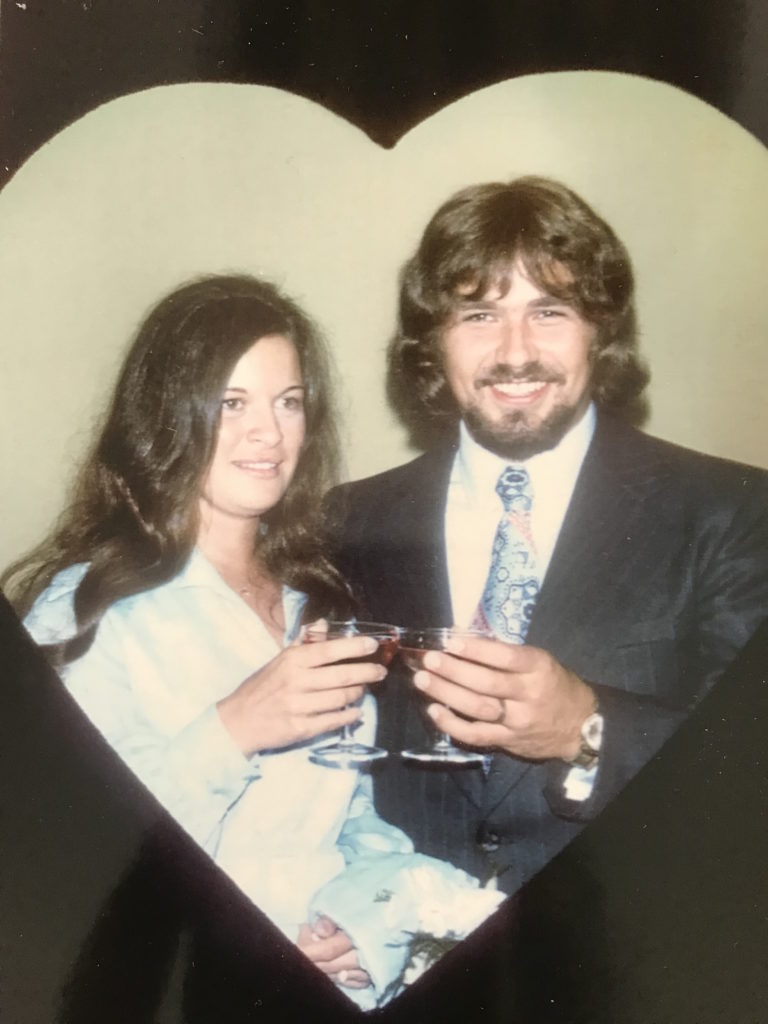
I will also remember Ron fondly because he helped nurture my passion for “The Sweet Science.” Whenever I was in the gym, the conversation would inevitably turn to the latest big fights and he would share his insight into the strategy and technique involved. One fighter in particular that dominated our conversations was Manny Pacquiao due to our mutual admiration for the Filipino icon. Manny was entering his peak just as I became a hardcore fan of the sport in 2009, which is when I started lessons with Ron. I admired how such a humble warrior, who came from poverty, could be so electrifying and explosive.
Ron liked Pacquaio because of his offensive-minded nature and his commitment to consistently seeking out the toughest challenges, and for the same reasons he expressed equal disdain for Floyd Mayweather Jr. Although he respected Floyd’s sublime defensive skills, he didn’t care for his bouts because they were almost always devoid of action. To Ron, boxing was at its best when it gave entertainment and drama, which is why he regarded offensive juggernauts like Pacquiao so highly. Ron valued the old-school mentality of fighting the best available competition. He admired Pacquaio for going out of his way to fight the biggest names of his era at the right time, including Morales, Marquez, Cotto, and Hatton, constantly jumping up weight divisions in order to do so.
But if there was one thing in this world that Ron loved more than boxing, it was his wife, Diane. She was from Levy, Quebec, but they had met in Florida and later reconnected when Ron was performing with his band in Quebec City. They married on August 5, 1972, and were together until she passed from breast cancer in 2017.
Ron’s story could not be complete without mentioning his lifelong battle with obesity. Just like the greatest pugilists, he won some battles on the scale and lost some too. As he explained to June Thompson in a 2012 profile for the Montreal Gazette, injuries and inactivity, combined with his love for food, caused him to pack on the pounds. “When you’re an athlete, you eat for fuel, but you work it off,” he said. But when he stopped working out, “my appetite didn’t go away. I would still eat, just not move.” It was a wake-up call in 2006, in the form of Diane’s breast cancer diagnosis, that forced Ron to look in the mirror and get his health back on track.
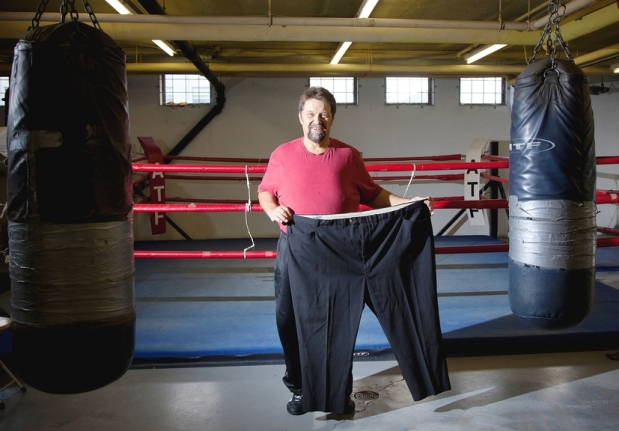
“When Diane was diagnosed, it shook him up because she was the love of his life, and he was hers,” affirms Rosen. “Just the thought of her not being well tore him up. He knew that he had to lose weight and get himself into a position to take care of her. So he would come to my house twice a week to train. I had a rack in the basement with a heavy bag, a speedball, and a focus ball. We’d work out for an hour, and then sit and talk. Then he started to do it in his house, and he took it to a completely different level.” Through dedication and discipline, Ron lost over three hundred pounds, getting down to 225 and feeling great.
“After two years, Diane went for treatment, and she got a clean bill of health,” recalls Rosen. “They were traveling and going on cruises every year, just enjoying life. And then the cancer came back, and he felt that she didn’t get the medical attention she should have from the system. She didn’t win her battle, and that took a big toll on him. The love of his life was gone. She was a very quiet, loving, simple woman, and when he lost that, he lost his better half. As much as he did have all these amazing relationships through boxing, he didn’t have his Diane. He had worked so hard to get into shape so they could enjoy each other, so he felt that they were both cheated.”
“He worshiped her and loved her,” recalls Iolanda. “They were a great couple and were fortunate to have found each other. In the last hour of Diane’s life, I witnessed them together, and I could see that the love was still shining in her eyes after all those years. I think that’s why it was so hard for him when she left.”
After Diane’s passing, Ron still made time to stay connected to his close friends and family, and to play poker, which was another passion of his. But it was clear that he no longer had the same zest for life without his Diane by his side. That is why St. Onge believes there is at least one silver lining in Ron’s passing: “When my wife phoned me and said that he had died, I said ‘good.’ I was relieved. I was happy for him that he had finally gone to join his wife. I believe in the life hereafter, and I believe they will be reunited.”
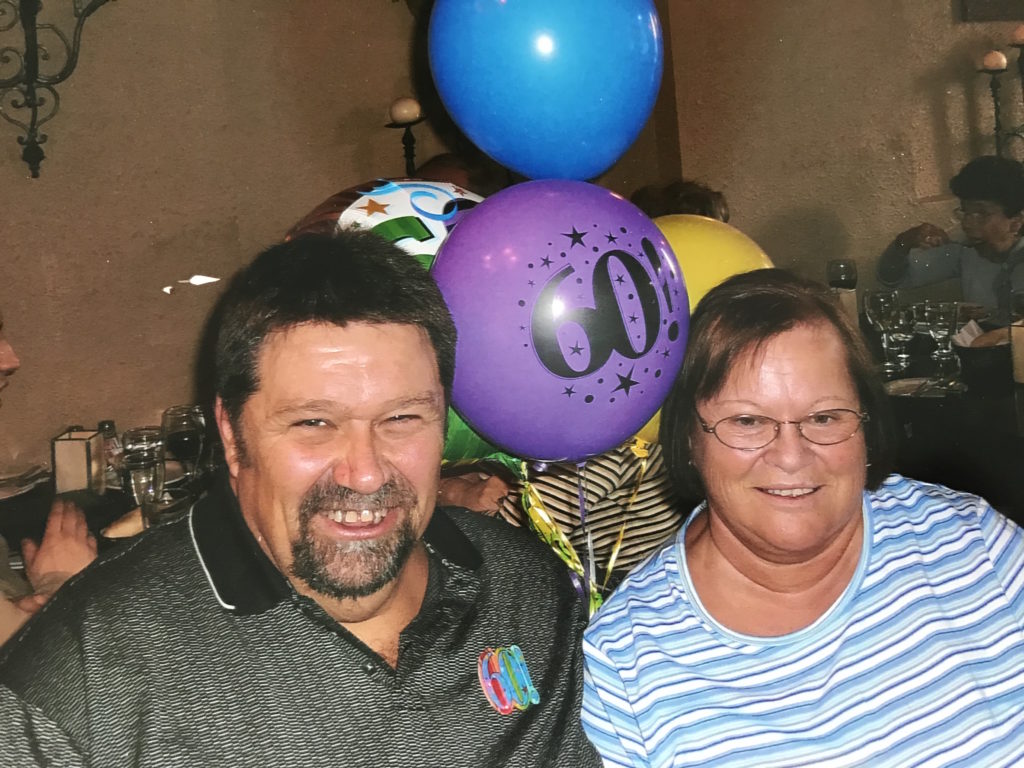
If you ask me, the true measure of a person is how many lives they positively impact along the way. And after talking to some of Ron’s family and friends, it is clear to me that for Ron Di Cecco, that impact has been immense. Countless individuals are grateful to have been the recipients of his kindness, affable personality, and generous spirit.
If there’s one thing that Brown will appreciate the most about Ron, it was his willingness to be vulnerable. “We were able to cry to each other. When my wife had left me, I was going through some hard times. Ron was too, because his wife had died a couple years prior. I remember one day, the first time I ever broke down with him, and he said to me: ‘Dan, real men cry. Don’t you forget that.’ And that was a powerful message to me because I didn’t know how to show that kind of emotion, especially with a man. Ron and I were able to do that in our relationship because we respected each other, we loved each other, and there was no judgment.”
“What Ron represented was the principles of honesty, integrity, and kindness,” says Rosen. “He was so kind, and he brought such good energy. He was a protector; he was always looking out for the underdog or for somebody who needed help.”
“He had such an easy way with people, it was incredible,” Iolanda recalls. “Even though I didn’t see him in the working world, I did see him interact with people. He had a love of life, and he wanted to have fun all the time. He had a good ear. He listened, and I think people loved him for that.”
I know I sure did. Ron, you will be missed, but you will forever be in our hearts.
— Jamie Rebner



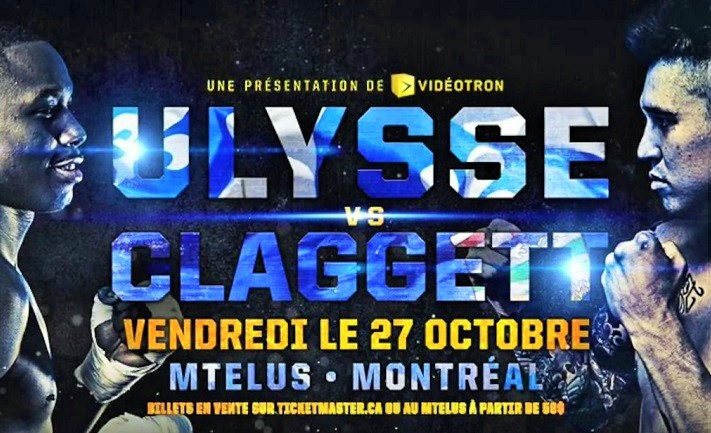
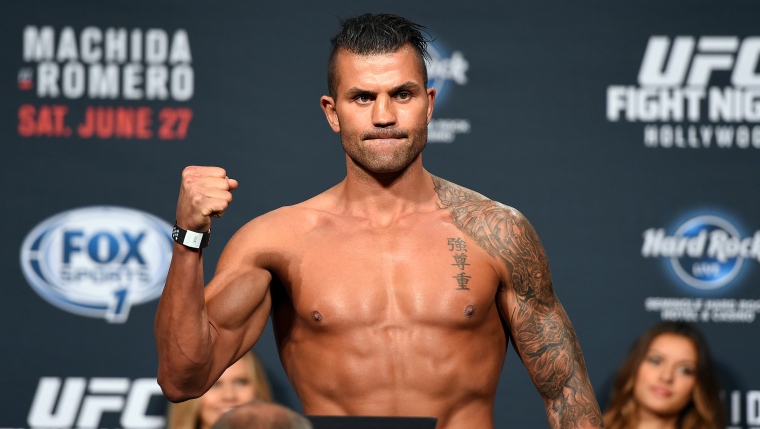
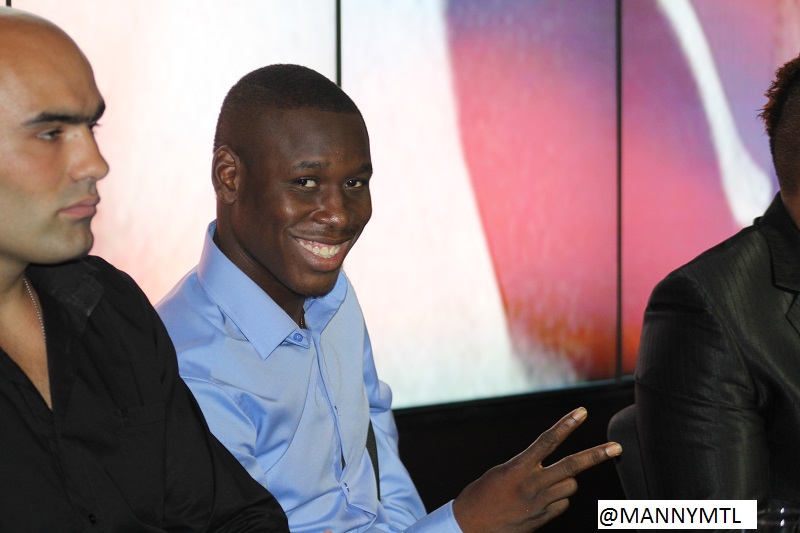
A truly inspirational story. His legacy will live on through all those he taught.
Amen. He was a great man indeed!
Great article for a genuine person. He had a good soul.
Thank you and I couldn’t agree more
Incredible story, thank you for sharing.
Thank you for reading. He was a great man and will be with us forever in our hearts!
Beautiful writing Jamie. An inspiring story, thank you for sharing
Thank you for reading. He was a great man!
Thank you for sharing Jamie, Ron will stay forever in our hearts – a truly wonderful human being.